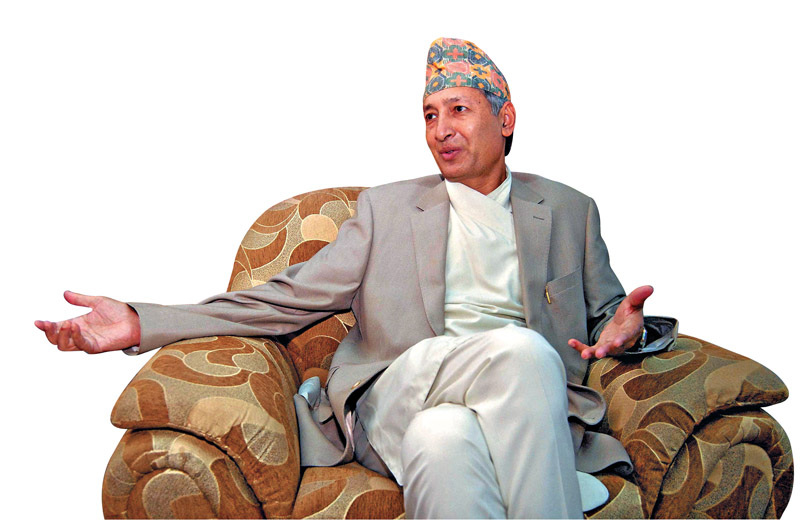‘New govt should emphasise effective public service delivery'
Kathmandu, February 15
As a new government has been formed today under the leadership of CPN-UML Chairman KP Sharma Oli following the successful completion of parliamentary and provincial polls, economists and private sector representatives have said that it has to work effectively for public service delivery, accelerate the projects under construction and bridge the yawning infrastructure gap to unleash the country's economic potential.
Renowned economist and former vice chairman of the National Planning Commission, Yubraj Khatiwada, said that the government will have to usher in effectiveness in public service delivery by facilitating lower layers of administration and help them by sending staffers at the local and provincial levels.
“Improvement in governance should be a key priority of the government and service-seekers should also be able to feel that there have been improvements in governance,” said Khatiwada.
As the country is passing through a transition to implement the federal system, the lower layers of administration must be provided help by the federal government in terms of capacity building and equip them for effective service delivery as they are concerned with service delivery at the grassroots level, he added.
Khatiwada also underscored the need to expedite development projects like Melamchi water supply project, safe drinking water distribution in urban areas, irrigation projects under construction and hydel projects like Upper Tamakoshi, among others.
“Priority projects that are in the doldrums like Budhigandaki, petroleum pipeline, upgradation of national highways and trade routes should be brought back on track and they need to be implemented soon.”
Khatiwada further said that the projects that will be initiated under the Millennium Challenge Corporation of the United States government and projects under Belt and Road Initiative should be given due priority by the new government.
Most importantly, as the implementation of the federal system is moving ahead as planned, proper infrastructure has to be set up and laws need to be framed. The new government has to provide business to the Parliament by framing the required laws and end the transition (to make the federal system functional in a full-fledged manner) caused by the lack of laws and physical infrastructure.”
It is said that around 400 laws need to be framed and updated.
Economist Shankar Sharma also advised the new government to delegate authority among the different layers of government and properly manage staff for delivery of services in the new administrative system. Stating that project implementation is always delayed in Nepal and on an average 87 per cent of the projects are facing acute challenges of cost and time overruns, Sharma said that the new government should aim to complete a few projects within five years or before the next election.
“It takes 11 years, on an average, for the completion of big infrastructure projects,” said Sharma. “The new government should take the initiative to develop a few national priority projects like Kathmandu-Tarai fast track and second international airport within the five-year tenure of the government.”
It should also focus on bringing foreign direct investment (FDI) through automatic routes like in India or Bangladesh as the FDI inflow is automated in many countries. “In Nepal, FDI is just $100 million or 0.4 per cent of the country's GDP, which is far below the average of 2.3 per cent of the GDP of least developed countries,” according to Sharma.
The new government should focus on capitalising the advantage of high-value addition potential of information technology industry in the country and also eye linking Nepali industries in the production network of Indian and Chinese industries. He also stated that the capital expenditure of the government should support private investment, whether in commercial and high-value agriculture, high-yield tourism or where there are chances of high-value addition like in the IT industry and economic zones.
Similarly, the private sector has urged the new government to facilitate private investment and reduce the extra burden of taxation, lack of infrastructure and other unforeseen costs of doing business in the country and provide an investment-friendly environment by introducing measures that facilitate the investors in the country. These will simultaneously create jobs, boost production and reduce the dependency on imports, the private sector players said.






